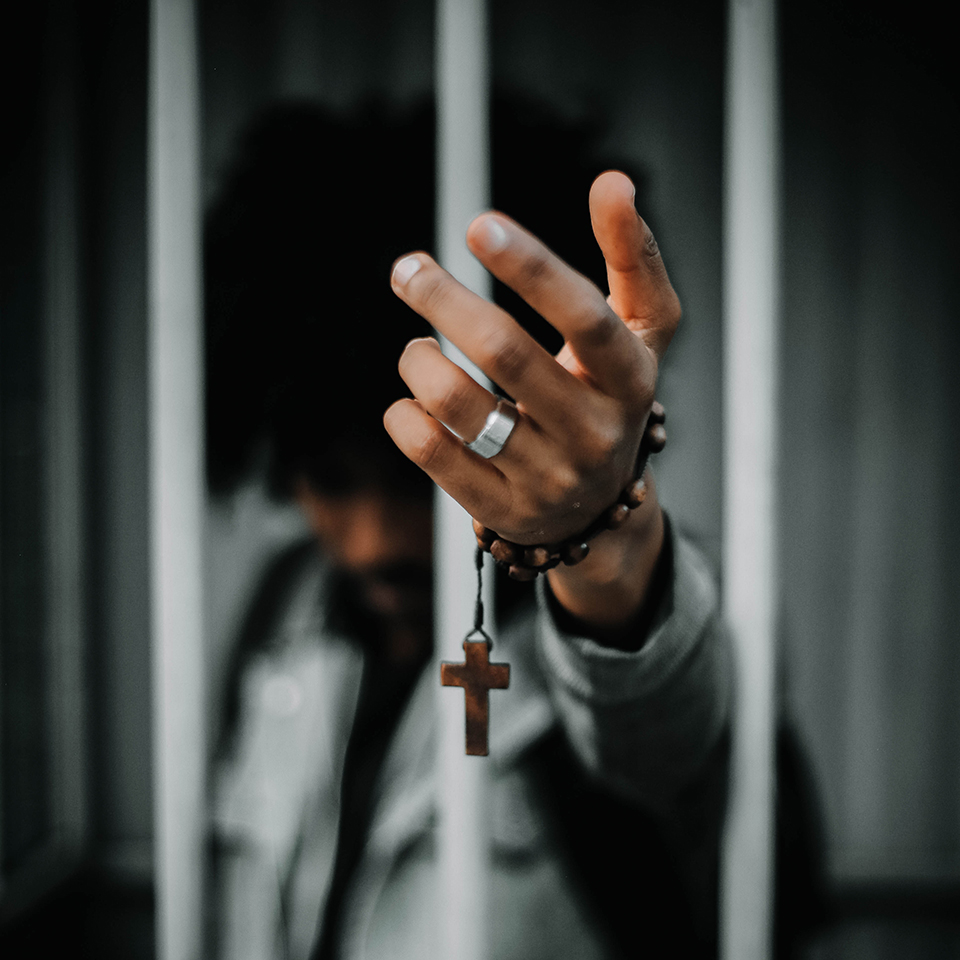Lord, help me see these men the way you do.
This was a prayer I made often during my first months of ministry as a chaplain at the DC Jail.
It was not a pious request. Instead, it was a desperate plea.
That’s because I was really, really struggling to recognize God in the inmates I was seeing there. In fact, I didn’t want to go see these men at all. They say jail is meant to be a deterrent, right? It certainly was for me. As soon as you leave, you don’t want to go back inside.
I was assigned to visit men in the “lockdown units,” a section of the facility (think: solitary confinement) where prisoners generally go either because they are awaiting trial for the most serious of felonies or because they have been violent or unruly in “gen pop” (the general prison population).
Being inside a corrections facility, especially the lockdown unit, is a uniquely awful sensory experience. The harsh soundscape alone (I’ll spare you any details of what I saw and smelled) was enough to make the honking and gridlock of my rush-hour drive back to the House of Studies feel tranquil by contrast. The unit is comprised of one big, clamorous ensemble: the constant slamming-shut of thick metal doors; the yells and screams (some angry, others plaintive) of inmates bouncing off the concrete walls; the deep, baritone barking of officers putting an unruly inmate in his place; the intercom cutting in just loudly enough that you can’t hear the person with whom you’re talking. No part of this maelstrom do inmates have the ability to tune out or shut off.
Indeed, they have control over almost nothing in their strictly confined lives—not even the lights in their cells. The lone fluorescent light in each man’s room is controlled by a timer. When the occupant hits the lightswitch, it stays on for a matter of minutes before shutting itself back off.
One Friday afternoon, as I walked the long hallway, a man had turned his lightswitch on and pressed his face against the small, rectangular window of his cell. He wanted to talk.
This man had a lot to say. He told me about his broken home growing up, the friends he had lost on the streets because of gangs, and about his own children he had disappointed. Next, he said, he wanted to tell me about why he was here.
Because it was difficult to hear him, I had my face right up to the glass. You would never stand this close to someone during a normal conversation—a few inches away—but this was the only way to hear or be heard.
Suddenly the light in his cell turned off. I had a light in the hallway; he had no light within. This created a strange, shadowed reflection: I could see the outline of my head and shoulders in the glass, but it was as if his eyes and mouth had replaced mine. Looking through the window, I didn’t know where I ended and he began. I watched a man with my face tell me about his crimes. About his desperate desire to change.
That’s when my prayer—Lord, help me see these men the way you do—was first answered. I finally realized: the Lord looked at these men the very same way he looked at me—as a sinner in need of his mercy.
There is more to it than that though.
Christ recognized himself in these men (Matt 25:39-40). And I was supposed to as well. God became man precisely to identify with these men, and all mankind. As Caryll Houselander reflects:
We are here to help Christ blindly. We must know Him by faith, not by vision. We must help Him not only in those who seem to be Christlike, but more in those in whom Christ is hidden; in the most unlikely people, in those whom the world condemns. It is in them that Christ, indwelling man, suffers most; it is in them that He cannot carry His cross without the help of other men. (The Way of the Cross, 32)
My prayer was answered, and therefore my prayer changed: Lord, help me see you in these men, and in all those to whom I minister.
This article was written by Br. Jordan Zajac, O.P.
